
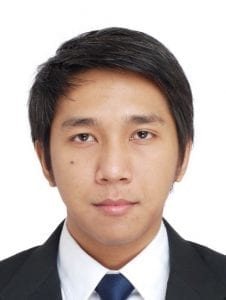
| Nama | : Randy Wirasta Nandyatama, SIP., M.Sc. |
| Departemen | : Department of International Relations |
| Research areas | : Regionalism, ASEAN, civil society, human rights, international politics |
| Nama prodi & univ tempat studi | : School of Social and Political Science, Faculty of Arts, the University of Melbourne |
| Nama supervisor | : Prof. John Murphy, Dr. Avery Poole, Dr. Daniel McCarthy |
| Nama topic/judul disertasi | : Civil Society Organisations and Human Rights in ASEAN: The case of Indonesia |
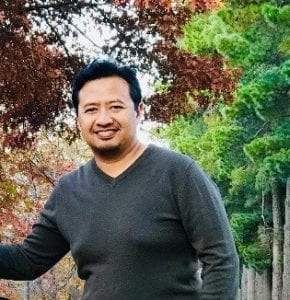
| Name | : Bahruddin, M. Sc |
| Department | : Social Development and Welfare. |
| Research area | : Corporate Social Responsibility, Regulatory studies. PhD Student at the School of Social and Political Sciences, Faculty of Arts, The University of Melbourne, Australia. |
| Supervisors | : Dr Kate MacDonald and Dr Rachael Diprose. |
| Theme | : Public voluntary regulation in a developing country; The case of Industrial Environmental Rating Program (PROPER) in Indonesia. |
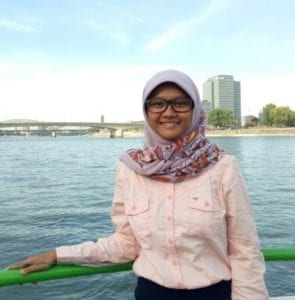
| Name | Pradhikna Yunik Nurhayati, S.I.P, MPA |
| Department | Public Policy and Management (MKP) |
| Research areas | Health Policy |
| Univ./place of study | Department of Political Science, National Cheng Kung University Republic of China (Taiwan) |
| Name of supervisor | Ling-Chun Hung, PhD (Associate Professor) |
| Research topic | Socio-economic Determinants of Health Inequality in Indonesia |
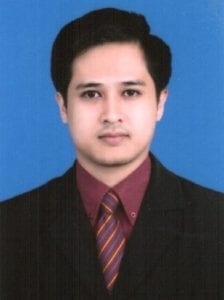
| Name | : Puguh Prasetya Utomo, S.I.P., MPA. |
| Department | : Public Policy and Management, Universitas Gadjah Mada |
| Research areas | : Organization study, public service management, public policy |
| PhD Program | : Public Administration, University of Agder - Norway |
| Supervisor | : Professor Romulo M. Pinheiro |
| Topic of dissertation | : Organizational Resistance under the Circumstance of Institutional Complexity |

| Name | : | Ashari Cahyo Edi, SIP., M.Sc. |
| Department | : | Politics and Government |
| Research areas | : | Comparative resource politics |
| University/place of study |
: |
Department of Political Science, Rockefeller College of Public Affairs & Policy, University at Albany – State University of New York, USA |
| Nama supervisor | : | Prof. Meredith Weiss |
| Research topic | : | Elite Capture in a Corporation-Sponsored Participatory Development: Comparative case studies in extractive industries in the context of Rural Indonesia. |
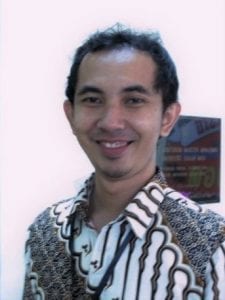
| Name | Ario Wicaksono, S.I.P., M.Si. |
| Department | Department of Public Policy and Management |
| Research areas | Policy transfer and learning; Organisational studies; Urban studies |
| Place of study | Institute for Governance and Policy Analysis, the University of Canberra, Australia |
| Supervisors | Professor Diane Stone (chair), Professor Mark Evans, Associate Professor Riyana Miranti |
| PhD research topic | Policy transfer in Indonesian administrative reform, with particular focus on investigating the role of academics in public office as agents of policy transfer |
| Summary of PhD research project | |
| My research aims to explore the role of academics-turned-top public officials -a longstanding tradition in Indonesia- as the agents of Indonesian administrative transfer. With their expertise, academics are expected to promote innovation, initiate reform agendas and lead and manage a change. In my research, Academic Administrative Entrepreneurs (AAEs) are introduced as a concept to provide a unique understanding of the role of agents of transfer in developing countries, in particular to better understand the Indonesian administrative reform. The thesis analyses the role of AAEs and the dynamics underpinning their role and identifies the distinctive characteristics of the policy transfer process in Indonesia, the changing nature of Indonesian governance in a period of democratic transition as well as the Indonesian political culture in general. The analysis considers: the resources (broadly defined as knowledge, political and social capital) they bring to the policy-making process; and its contribution to their emergence and power base; the way to understand their interactions within the policy transfer framework, other structures (e.g. international organisations), and stakeholders; and the way they maximise some success factors and overcome barriers; and eventually offer an insight about how far they effectively contribute to the change process. | |
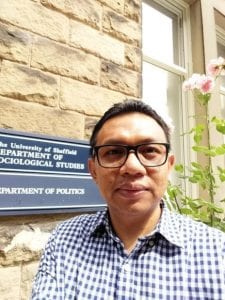
| NAME | : | Hasrul Hanif, S.IP, MA |
| DEPARTMENT | : | Politics & Government |
| RESEARCH AREAS | : | Resource Politics; Governance Studies, Comparative Development & Democracy; |
| UNIVERSITIY/PLACES OF STUDY | : | Department of Politics, University of Sheffield, United Kingdom |
| SUPERVISORS | : | DR. Matthew Wood (First Supervisor), Professor Allister McGregor (Second Supervisor) |
| PhD Research Topics | : | Depoliticisation and Democratic Governance in Indonesia: The Case of the Extractive Industries Transparency Initiative |
| Summary | My research aims to examine attempts at, and governing strategies of, depoliticisation and their effects on political alienation through the institutionalisation of transparency and accountability of natural resource governance at the Extractive Industries Transparency Initiative (EITI) in Indonesia. In a broader sense, the research also attempts to investigate the depoliticised practices of governance reform in the context of political democratisation in the Global South. The study aims to answer the important question about the popular control on the public affairs in democratic system, through a micro study on depoliticisation in governance reform in extractive industries. The extractive sector is a contentious political issue that is often fervently debated in many resource-abundant countries in the Global South. Therefore, the absence of public empowerment or the extent to which the public can access, control and influence the discourse and policy-making processes is compelling to investigate. |
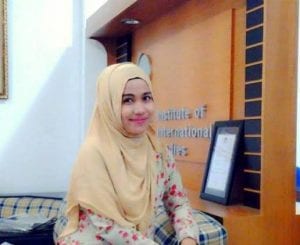
| Name | : Suci Lestari Yuana, S.IP., M.I.A. |
| Department | : International Relations |
| Research Areas | : innovation governance, platform economy, discourse analysis |
| University/Places of Study | : Department of Innovation Studies, Copernicus Institute of Sustainable Development, Utrecht University, The Netherlands |
| Supervisors | : prof. dr. ir. Rob Raven (promotor), prof. dr. Maarten Hajer (co-promotor), dr. Wouter Boon (daily supervisor), dr. ir. Frans Sengers (daily supervisor) |
| Ph.D. research topic | : The Dynamic of Platform Economy in Indonesia: Cyberspace, Politics and Socio-Technical Innovation |

| Name | : Nurul Dwi Purwanti, S.I.P., MPA. |
| Department | : Public Policy and Management, Universitas Gadjah Mada |
| Research areas | : Industries Creative Design, Creative Cultural Policy |
| PhD Program | : Institute of Creative Industries Design, College Planning and Design, National Cheng Kung University, Taiwan |
| Supervisor | : Hsiao-Ling Chung, PhD |
| Topic of dissertation | : Creative Governance in The Creative Cultural City |
